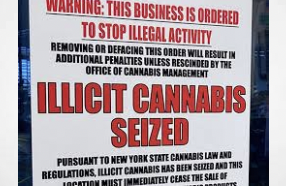On 14 March WHYY in Pennsylvania reported on a major loophole with Medical Cannabis Legislation in the state, concerning employment law.
Say you went through all the legal steps to get your medical marijuana card, and you take your legally acquired medical marijuana consistently to treat your glaucoma, or epilepsy, or PTSD. But, if your employer suspects you’re using marijuana, you can be drug tested. And if you fail, you can be fired.
The report reveals that Philadelphia City Council’s Labor and Civil Service Committee is currently working on developing a response to this set of issues as soon as they can.
“It’s such a rapidly evolving area … I don’t need to tell all of you that five or 10 years ago, if you told me we would be sitting here talking about this, I would not have believed you,” said George Voegele, one of the lawyers the committee invited to discuss the intersection of medical marijuana and the law during a Wednesday session in City Hall.
WHYY identify the issue further, reporting….
This is the tension: Medical marijuana patients have the right to medicate with cannabis under state law, and they have the right to medical privacy. But employers abide by federal law, and federal employers have to abide by the Drug-Free Workplace Act.
To make matters more complicated, state law has specific regulations for employers. Medical marijuana patients should not work in some construction jobs that involve confined spaces or heights, according to Pennsylvania law. But employers have broad discretion in identifying positions as “safety sensitive.”
“Employers may prohibit patients who are employees from performing any task which the employer deems life-threatening to the employee or other employees while under the influence of marijuana,” the law states.
It’s not clear how the state is defining “under the influence,” said Josh Horn, partner and co-chair of the cannabis law practice of Fox Rothschild. People can fail a drug test — but what a drug test determines is use, not impairment.
“I think there’s a gap in the law as to what it means to be under the influence,” Horn said.
It’s also possible that a medical marijuana patient who drives a school bus could be hired one day and fired the next for failing a drug test — because of zero-tolerance policies.
Lawsuits, then, seem inevitable, said Horn. And patients would have a legitimate claim. A Massachusetts court ruled last year employers can’t fire a medical marijuana patient for failing a drug test.
Read more of the report at
https://whyy.org/articles/philly-council-panel-wants-develop-workplace-guidelines-medical-marijuana/
Joshua Horn has also provided CLR with a little more depth to his initial comments to WHYY, that we thought might be of interest to our readership.
Let’s remember that medical cannabis regulation is soon to hit New Jersey, many believe, that state’s legislation will create a tipping point up and down the east coast creating a mirror to what’s happening on the west coast.
It goes without saying that the state on the east coast that irons out these problems first will create a template for others and, if the others are too slow, tax dollars will flow to the state with the most efficient solution. Will Horn be the man to do it?
Horn writes……
The Philadelphia City Council Labor and Civil Service Committee conducted a hearing on March 14, 2018 to assess, among other things, whether the Pennsylvania Medical Marijuana Act may have unintended consequences when it comes to issues involving employers and their employees who are certified to be in the medical marijuana program.
The Committee was of the view that it has a potentially large voice when it comes to shaping the discussion and regulations that may be developed as a result of the Medical Marijuana Act.
The testimony focused on possible gaps in the legislation that could disrupt the employer/employee relationship. One such gap is the fact that the act, with limited exception, does not provide guidance on what it means for someone to be “under the influence” of medical marijuana when it comes to prohibited activity under the act.
The Committee entertained discussion of how such a gap could be filled, with the long-term goal of developing potential recommendations to share with the Commonwealth Department of Health and legislature.
The Committee intends to consult me going forward in order to better cultivate ideas that then can be shared with a larger constituency.




















